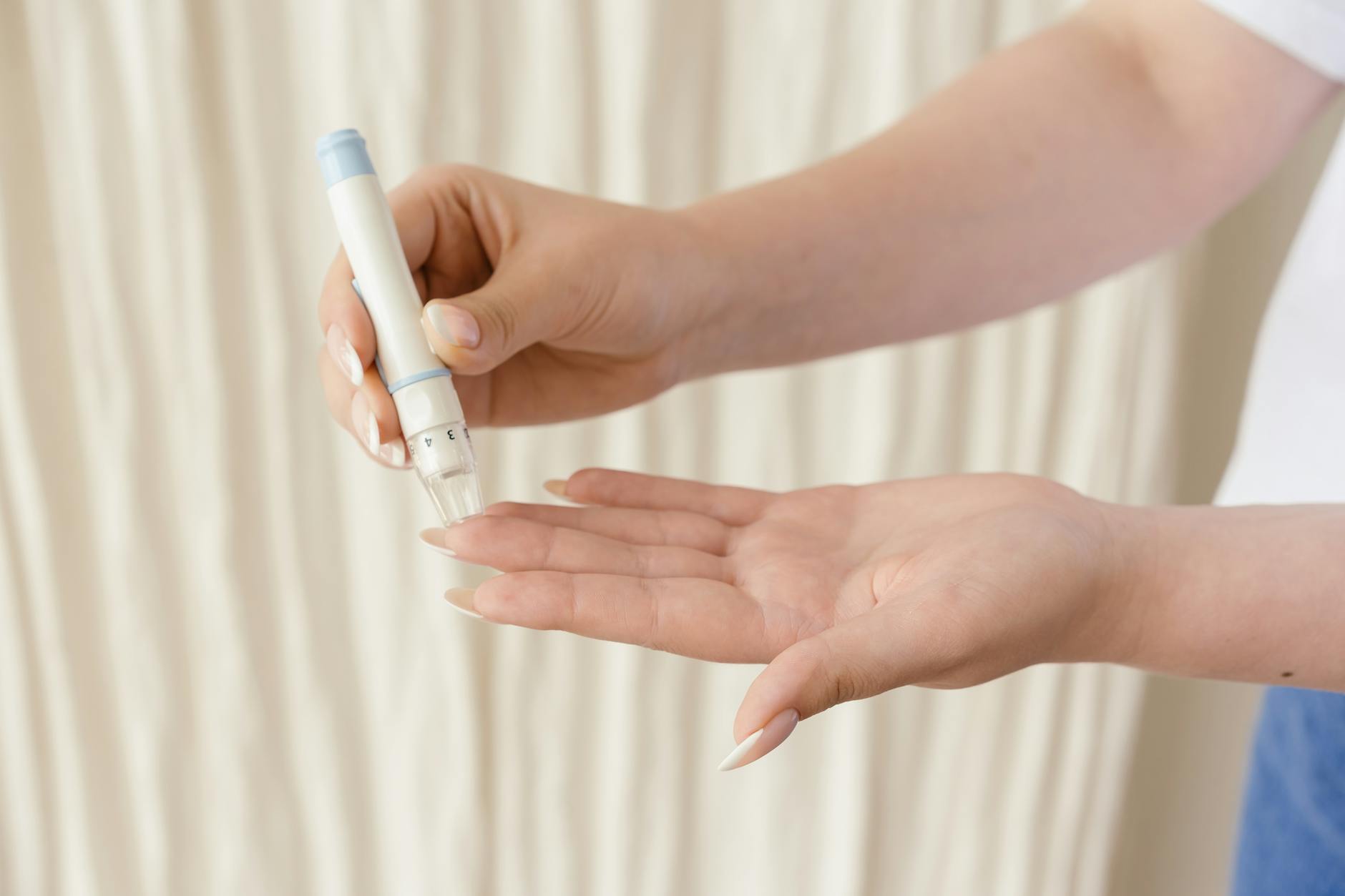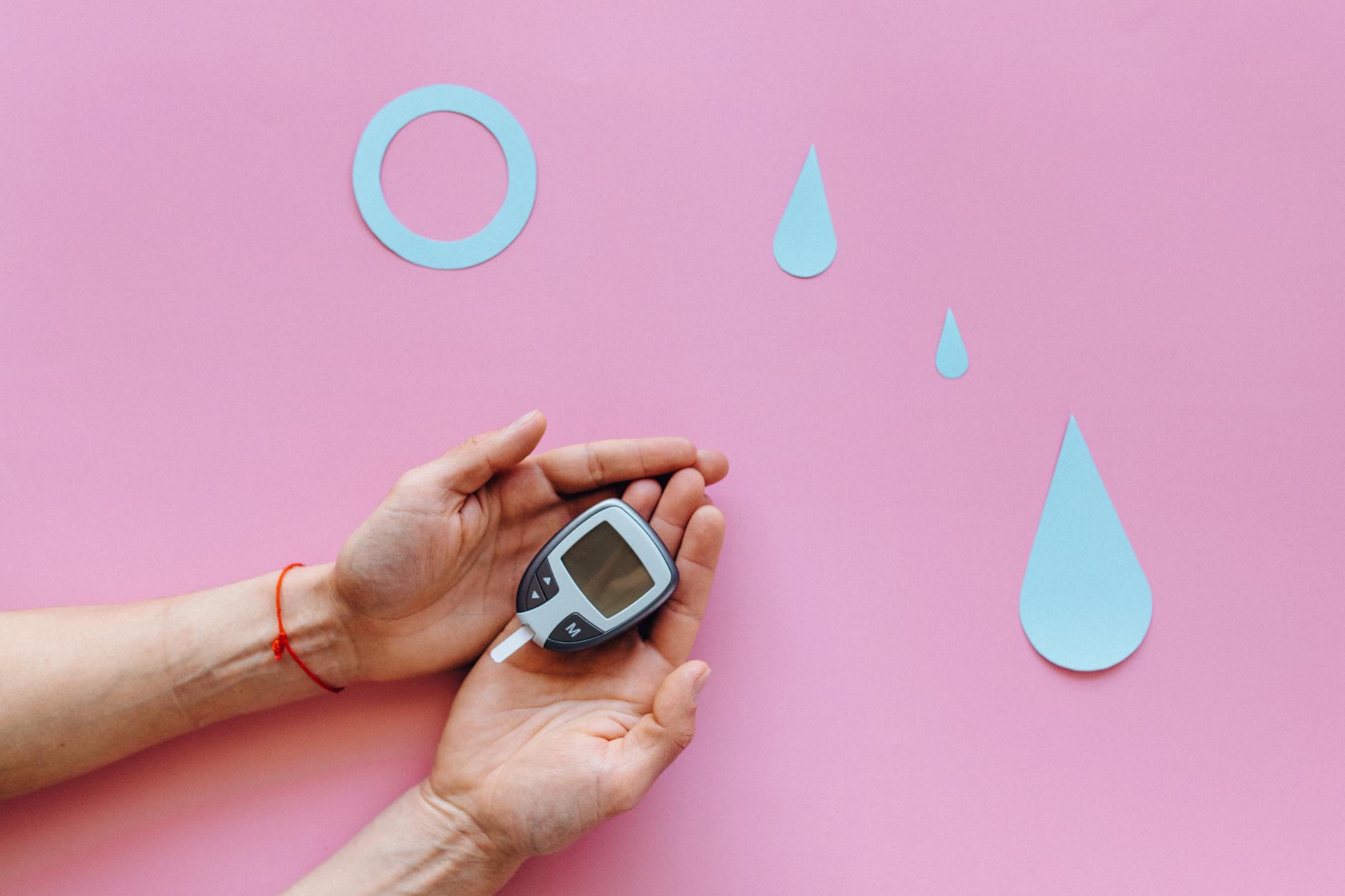Rising blood sugar levels are a growing concern worldwide, affecting millions. Keeping them in check is critical not just for managing diabetes but for overall well-being. The best part? You don’t always need medications to take control. There are effective, natural ways to maintain healthy blood sugar levels. From dietary shifts to proven lifestyle habits, you’ll find practical solutions to help you regain balance. With the right choices, staying on track becomes easier than you might think.
Understanding Blood Sugar Levels
Managing your blood sugar is one of the most critical aspects of maintaining overall health. It’s not just something those with diabetes need to think about—it’s important for anyone. Let’s break it down step by step, so you understand what blood sugar is and why its stability matters.
What is Blood Sugar?
Blood sugar, or glucose, is the main type of sugar in your blood. It comes from the food you eat, primarily carbohydrates, and is your body’s primary source of energy. Every cell in your body uses glucose to function, especially your brain, which makes it crucial for daily energy and focus.
Your blood sugar levels fluctuate throughout the day. They rise after eating and drop after physical activity or longer periods without food. Normally, your body regulates blood sugar levels with hormones, such as insulin and glucagon. Insulin helps glucose get into your cells, while glucagon signals the liver to release stored glucose when levels are low. This balance keeps you energized and avoids health issues.
 Photo by Artem Podrez
Photo by Artem Podrez
The Importance of Regulation
Why does keeping blood sugar under control matter? When your blood sugar is too high or too low, it disrupts your body. High levels over time can lead to chronic issues like diabetes, heart disease, and kidney problems. On the flip side, low blood sugar can make you feel shaky, weak, or even pass out if it gets severe.
Stable blood sugar ensures your energy stays consistent, preventing those mid-afternoon crashes or feeling sluggish. It’s also essential for mental clarity—erratic levels can mess with your mood and focus. For example, ever feel irritable or “hangry” when you haven’t eaten? That’s a sign your blood sugar dropped too low.
Incorporating natural ways to control blood sugar isn’t just for those struggling with diabetes; it’s a no-brainer for anyone aiming to stay healthy. Whether it’s including fiber-rich foods or balancing your meals, these little tweaks can make a huge difference.
Natural Ways to Lower Blood Sugar
If you’re aiming to learn how to lower blood sugar naturally, you’re in the right place. Managing your levels starts with simple, everyday habits that can significantly impact your well-being. Let’s dive into the most effective natural strategies you can adopt today.
Dietary Changes: List Specific Foods That Help in Lowering Blood Sugar
What you eat holds incredible power over your blood sugar levels. Including the right foods in your diet helps regulate those spikes and dips that can leave you feeling off-balance. Here’s a list of foods that can help:
- Leafy Greens: Spinach, kale, and broccoli are low in carbs and packed with nutrients.
- Nuts and Seeds: Almonds, walnuts, and chia seeds offer healthy fats that stabilize blood sugar.
- Whole Grains: Brown rice, quinoa, and oats provide fiber, which slows sugar absorption.
- Berries: Blueberries and strawberries are sweet but low on the glycemic index.
- Legumes: Lentils and chickpeas are rich in protein and fiber.
Adding these to your meals isn’t complicated. A handful of nuts for a snack or swapping white rice for quinoa can make a noticeable difference. Balancing your meals with the right foods is a cornerstone for understanding how to naturally maintain steady blood sugar levels.
Physical Activity: Explain How Exercise Impacts Blood Sugar Levels
Exercise isn’t just about staying fit—it plays a vital role in blood sugar control. When you move, your muscles use glucose for energy, which naturally reduces sugar levels in the bloodstream.
Engaging in regular activities like walking, swimming, or yoga can be especially effective. For instance:
- Aerobic Exercise: Activities like jogging or cycling improve insulin sensitivity.
- Strength Training: Building muscle helps your body process sugar more efficiently.
- Gentle Movements: Even a 10-minute walk after meals can reduce post-meal blood sugar spikes.
Exercise doesn’t need to be intense to make a difference. Pick what you enjoy, and consistency will give you the best results.
Hydration and Its Role: Discuss the Importance of Staying Hydrated
Staying hydrated is more important than most people realize when it comes to blood sugar. Water aids your kidneys in flushing out excess sugar through urine, helping maintain balance.
Drinking enough water daily—a minimum of 8 glasses—can also prevent dehydration, which can raise blood sugar levels. Try sipping on herbal teas or infusing water with fresh fruit for a bit of flavor.
Stress Management Techniques: Outline How Stress Affects Blood Sugar and Ways to Manage Stress
Did you know stress can send your blood sugar soaring? When you’re stressed, your body releases hormones like cortisol, which can increase sugar levels. It’s why managing stress is key to keeping your numbers in check.
Here are some practical techniques to try:
- Meditation: Just 10 minutes of focused breathing can calm your mind.
- Physical Activity: A quick workout or a walk outdoors releases feel-good endorphins.
- Hobbies: Dive into something you find relaxing—whether it’s painting, gardening, or playing music.
The next time stress creeps in, try these methods to keep both your mind and blood sugar steady.
Sleep and Blood Sugar Control: Explain the Connection Between Sleep and Blood Sugar Levels
Getting quality sleep isn’t just a luxury; it’s a necessity for blood sugar control. Poor sleep throws off your body’s natural insulin regulation, causing sugar levels to rise.
Aim for 7-9 hours of uninterrupted sleep each night. Here’s how to set the stage for restful shut-eye:
- Stick to a Schedule: Go to bed and wake up at the same time daily.
- Create a Relaxing Environment: Dim lighting and a tech-free zone can work wonders.
- Avoid Late-Night Snacks: Eating close to bedtime can disrupt insulin levels.
A consistent sleep routine is one of the simplest yet most effective natural ways to keep your blood sugar balanced.

Photo by Mikhail Nilov
Sleeping well, eating right, and staying active work in harmony to support your body’s ability to maintain balance naturally. You don’t need to overhaul your life to see results—small steps can bring significant change.
Supplements for Blood Sugar Control
Balancing blood sugar naturally can be challenging, but supplements offer a helping hand. While dietary and lifestyle changes are essential, integrating specific supplements into your wellness strategy can provide much-needed support. Let’s explore the options available.
Gluco Extend

Photo by Artem Podrez
One standout in the world of blood sugar supplements is Gluco Extend. This formulation is designed specifically to maintain healthy blood sugar levels while also supporting overall metabolic health. But how does it help?
Gluco Extend combines natural, plant-based ingredients proven to support glucose metabolism. This makes it an excellent choice for those looking for an alternative or complement to traditional methods. Some of its benefits include:
- Stabilizing Blood Sugar Levels: Promotes balance and reduces spikes.
- Increasing Energy: Helps sustain energy by regulating how your body uses sugar.
- Supporting Insulin Sensitivity: Improves the body’s response to insulin, promoting better glucose control.
If maintaining steady blood sugar feels like an uphill battle, this supplement can simplify the process. Think of it as adding an extra tool to your wellness toolkit.
Other Useful Supplements
Beyond Gluco Extend, several other natural supplements focus on regulating blood sugar. These are widely recognized for their potential benefits:
- Cinnamon Extract: Known for its ability to improve insulin sensitivity. A daily dose can enhance glucose levels over time.
- Berberine: Extracted from plants, it has shown promise in regulating blood sugar and reducing insulin resistance.
- Chromium: This essential mineral helps in the metabolism of carbohydrates, making it easier to sustain balanced sugar levels.
- Alpha-Lipoic Acid (ALA): A powerful antioxidant that not only manages sugar but also combats oxidative stress.
- Magnesium: A deficiency in magnesium is linked to poor blood sugar control. Supplementing fills this gap effortlessly.
Adding some of these into your routine can make a real difference. Just ensure they align with your individual needs or consult a healthcare professional for the best guidance.
When to Consult a Doctor
Managing blood sugar naturally is empowering, and it can lead to remarkable results. However, knowing when to seek medical advice is equally important. Recognizing signs and taking proactive steps ensures your health stays on track while complementing these natural strategies.
Symptoms of High Blood Sugar
Spotting the symptoms of elevated blood sugar levels is critical to understanding when it’s time to involve a healthcare professional. High blood sugar, or hyperglycemia, can creep up without obvious signs at first but may later present noticeable symptoms such as:
- Excessive Thirst: Feeling constantly parched, even after drinking water.
- Frequent Urination: Visiting the bathroom more often than usual, especially at night.
- Fatigue: Experiencing extreme tiredness despite adequate rest.
- Blurred Vision: Sudden difficulty focusing or seeing clearly.
- Slow-Healing Wounds: Cuts or infections take longer to heal.
- Increased Hunger: Feeling hungry soon after eating, often accompanied by weight loss.
If you notice these symptoms lingering or intensifying, it’s time to consult a professional. Ignoring these signs could lead to more significant complications over time.

Photo by Nataliya Vaitkevich
Regular Monitoring
Consistently monitoring blood sugar provides invaluable insights into your health. Think of it as a daily weather check for your body—it tells you what’s working and when adjustments are needed. This routine becomes even more vital for those managing diabetes or prediabetes.
Here’s why monitoring matters:
- Identifies Trends: Helps you spot patterns in your blood sugar fluctuations.
- Guides Decisions: Empowers better meal, activity, and lifestyle choices.
- Prevents Emergencies: Alerts you to dangerously high or low levels before they become critical.
- Improves Communication: Provides clear data for discussions with your doctor.
Using tools like a glucometer or continuous glucose monitors (CGM) can simplify this process and make tracking results part of your regular habit. If readings are consistently outside the target range, don’t hesitate to involve your healthcare provider. Persistent high levels might require medical adjustments or further testing to uncover underlying causes.
For more insights on caring for your overall health and understanding when to involve a professional, you can explore guidance in articles such as Gentle Care for Skin Cancer: A Comprehensive Guide. Combining resources and expert advice can empower your journey toward wellness.
Conclusion
Taking steps to lower blood sugar naturally can transform your health and improve your energy levels. From eating smarter to managing stress, each small change adds up.
Start by incorporating these strategies into your daily routine one at a time. Whether it’s adding more leafy greens or staying consistent with light exercise, the key is action.
For further insights, consider exploring natural wellness topics on TheDailyCart. Small decisions today pave the way for a healthier future. Embrace these changes, and your body will thank you.
Disclaimer:-
This post contains affiliate links. If you purchase through these links, I may earn a small commission at no extra cost to you. Always consult a healthcare professional before trying any new products. We are not responsible for any adverse effects or mishaps resulting from the use of the products mentioned.